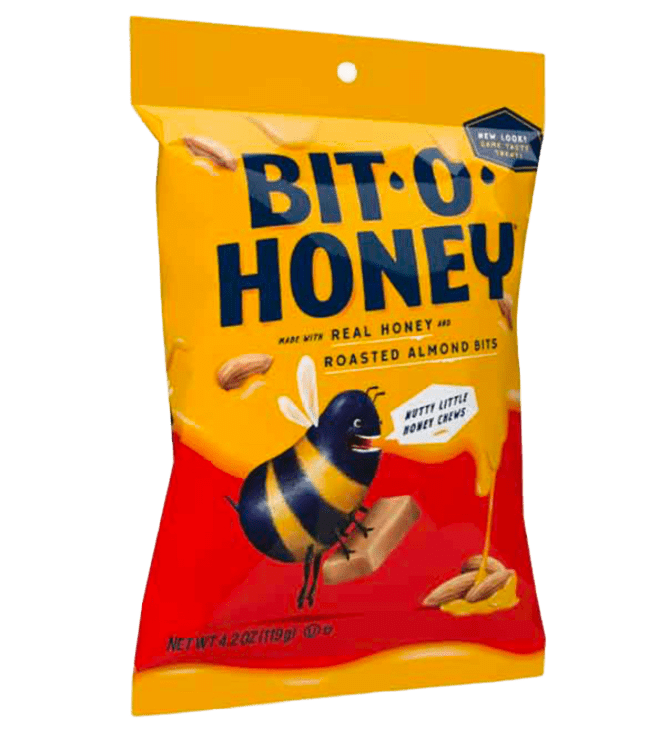Bit-O-Honey is an American candy that debuted in 1924, created by the Schutter-Johnson Company in Chicago.
It’s a honey-flavored taffy with almond bits, originally sold as a bar split into six pieces and wrapped in wax paper. The candy gained a following for its chewy texture and unique flavor, standing out in an era dominated by chocolate bars. In 1969, Schutter-Johnson merged with the Ward Candy Company, which led to short-lived spin-offs like Bit-O-Chocolate and Bit-O-Peanut Butter.
The brand changed hands multiple times—sold to Nestlé in 1984, then to Pearson’s Candy Company in 2013, and finally to Spangler Candy Company in 2020. Spangler moved production to Bryan, Ohio, in 2023, where it’s still made with real honey and almonds, available in bite-sized pieces or theater boxes. It’s a nostalgic treat, often compared to Mary Jane candy, with a reputation for sticking to your teeth.



Reviews
There are no reviews yet.